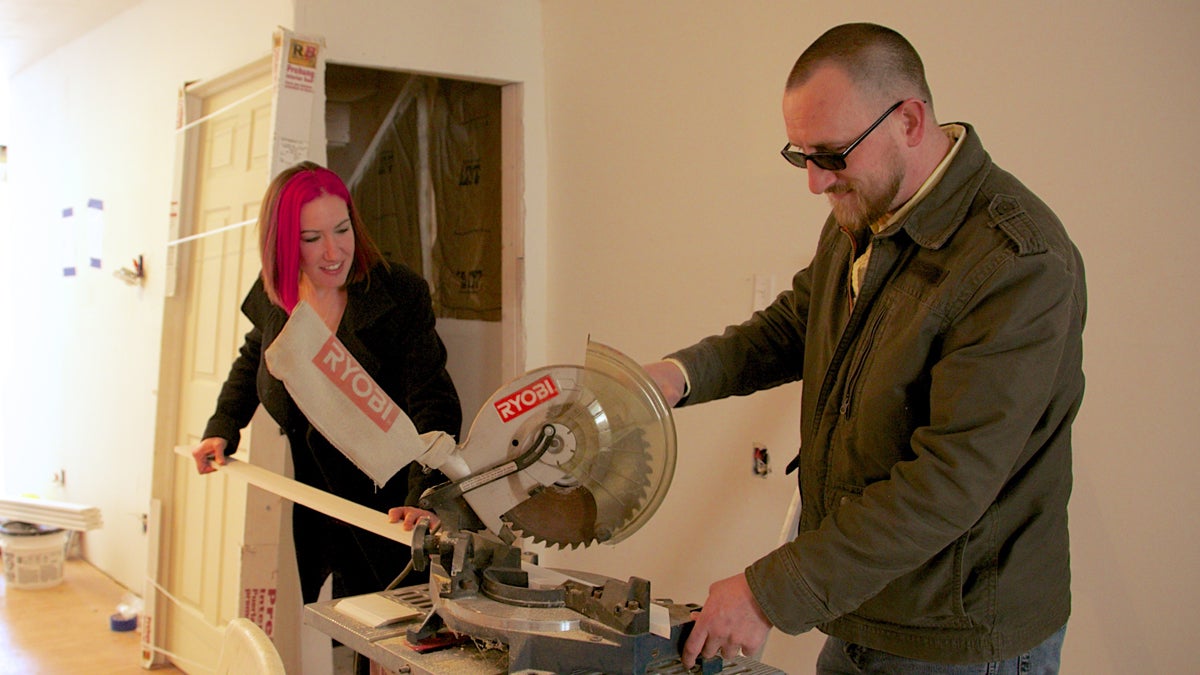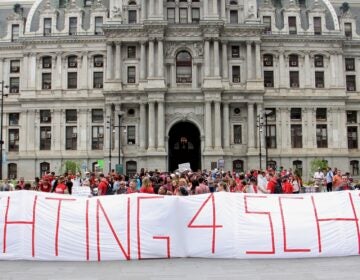Shelter planned in North Philly for LGBT youth

Rusty Doll and Lisa Sipes work together on their remodeling project (Nathaniel Hamilton/for NewsWorks)
A year and a half ago, Rusty Doll bought a house in North Philadelphia. At around the same time he met a young man who was homeless and shared stories of being bullied and harassed in traditional shelters.These stories inspired Doll to approach his friend, Lisa Sipes with an idea.
“There are no facilities available for him in City of Philadelphia that can provide a safe environment for him,” Doll said, “we should do something.”
Specifically, he wanted to turn his North Philly house renovation project into a shelter for lesbian, gay, bisexual and transgender youth.
Doll himself spent two weeks living with friends after coming out to his wife as gay at the age of 30.
“I know what it’s like for these guys,” he explained. “I mean I didn’t live on the streets. I had a few couches to sleep on here. But I don’t have the family supports here. My family’s back in Iowa. So I had to work with friends and close acquaintances that I could crash at their place.”
Sipes’ reaction was positive. “As a teenager I wished that I could buy an island that anyone who needed anything,” she said. “I was like, ‘yes, we have to do this.'”
The project, which they’re calling Change Philly Today is relatively small. They think the house, with a new roof and some additional renovations, could eventually be home for eight teens, including four long-term residents and four spaces for short-term stays.
However, the project is still an ambitious one. Doll is aware that at least two previous efforts to open a shelter for LGBT teens in Philadelphia have failed.
This is an especially difficult population to work with, said Meghan Maury, of the National Gay and Lesbian Task Force. Many LGBT teens become homeless after their families react badly to learning of their sexual orientation.
“These youths are more likely to attempt suicide, to have high levels of depression, more likely to use illegal drugs, more likely to have engaged in unprotected sexual intercourse compared with peers from families that haven’t experiences things like family rejection,” Maury said.
For those reasons, Maury says housing solutions need to include access to other services — through close relationships with social-service organizations.
Doll originally hoped to open the shelter’s doors on June 1, but has come to realize, for a variety of reasons, that it will probably take longer.
WHYY is your source for fact-based, in-depth journalism and information. As a nonprofit organization, we rely on financial support from readers like you. Please give today.




